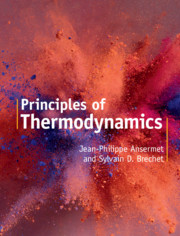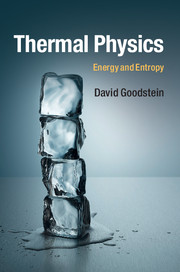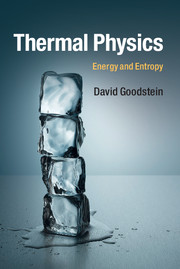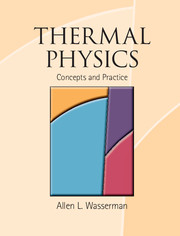Principles of Thermodynamics
In this introductory textbook, thermodynamics is presented as a natural extension of mechanics, so that the laws and concepts learned in mechanics serve to get acquainted with the theory. The foundations of thermodynamics are presented in the first part. The second part covers a wide range of applications, which are of central importance in the fields of physics, chemistry and engineering, including calorimetry, phase transitions, heat engines and chemical reactions. In the third part, devoted to continuous media, Fourier and Fick's laws, diffusion equations and many transport effects are derived using a unified approach. Each chapter concludes with a selection of worked examples and several exercises, to reinforce key concepts under discussion. A full solutions manual is available at the end of the book. It contains more than 150 problems based on contemporary issues faced by scientists and engineers that are solved in detail for undergraduate and graduate students.
- Applicable to many fields of research and development, it is relevant to students from physics, chemistry and engineering backgrounds
- Exercises inspired by research allow the reader to develop an appreciation of modern research methods
- Worked problems allow students to test their understanding of key concepts
Product details
February 2019Hardback
9781108426091
542 pages
253 × 194 × 29 mm
1.33kg
176 b/w illus.
Available
Table of Contents
- Preface
- Acknowledgements
- Part I. Foundations:
- 1. Thermodynamic system and first law
- 2. Entropy and second law
- 3. Thermodynamics of subsystems
- 4. Thermodynamic potentials
- Part II. Phenomenology:
- 5. Calorimetry
- 6. Phase transitions
- 7. Heat engines
- 8. Chemistry and electrochemistry
- Part III. Continuous Media:
- 9. Matter and electromagnetic fields
- 10. Thermodynamics of continuous media
- 11. Thermodynamics of irreversible processes
- Part IV. Exercises and Solutions:
- 12. Thermodynamic system and first law
- 13. Entropy and second law
- 14. Thermodynamics of subsystems
- 15. Thermodynamic potentials
- 16. Calorimetry
- 17. Phase transitions
- 18. Heat engines
- 19. Chemistry and electrochemistry
- 20. Matter and electromagnetic fields
- 21. Thermodynamics of continuous media
- 22. Thermodynamics of irreversible processes
- References
- Index.





